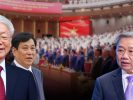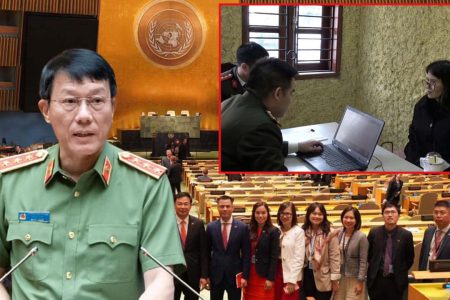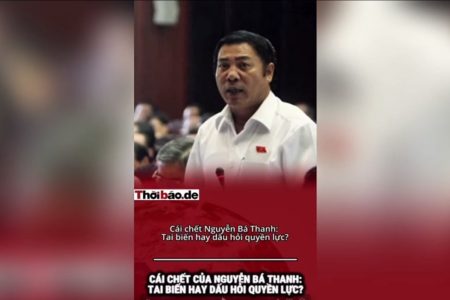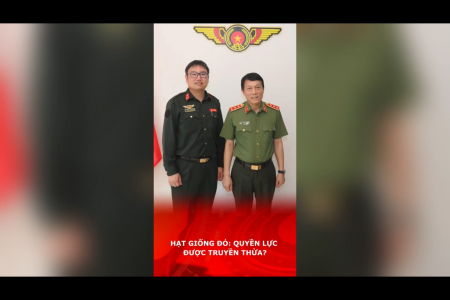
CPTPP is really attractive
Less than a week after China officially applied to join the Comprehensive and Progressive Agreement for Trans-Pacific Partnership (CPTPP), on September 22, Taiwan issued a similar statement, and at the same time notify all treaty members to seek support.
CPTPP is a free trade agreement with the highest standards in the world, including 11 member countries, with a population of 500 million people, accounting for 13% of the total global economy. Currently, there are three economies that have applied to join the agreement: the United Kingdom after one year of leaving the European Union (EU), China, and Taiwan.
Taiwan’s application to join the CPTPP on September 22 has angered China. Beijing has always considered the island of Taiwan as one of its provinces and has no right to become an independent country.
Some economic experts commented that China has a commercial level that does not meet the standards of the CPTPP. However, just five days after signing the Regional Comprehensive Economic Partnership (RCEP) agreement in November 2020, President Xi Jinping has announced that he will actively consider joining the CPTPP.
On September 13-14, Chinese State Councilor and Foreign Minister Wang Yi visited Singapore, personally conveying information that President Xi Jinping wanted China to join the CPTPP and the Ministry of Foreign Affairs of Singapore expressed „welcome“ in the official statement. Within three days, China formally applied for accession.
Meanwhile, Taiwan has expressed its desire to join the CPTPP very early. In his 2015 inauguration speech, Taiwan’s head of government, Tsai Ing-wen, emphasized his desire to lead Taiwan to join the Trans-Pacific Partnership (TPP) and RCEP. In March 2018, when 11 member countries officially signed the CPTPP, Ms. Tsai Ing-wen again instructed to put all her efforts into getting ready to join. Speaking in the port city of Keelung in northern Taiwan on September 24, President Tsai Ing-wen said the island is very strong in technology and ready to join the bloc. „Participating in the CPTPP will strengthen Taiwan’s important global strategic, economic and commercial position, and further integrate with the world,“ she said.
Who will support Taiwan?
Taiwan’s top trade representative John Deng said on September 23 that Taiwan’s attempt to join the CPTPP would face significant risks if China was accepted first. Speaking at a press conference on September 23, negotiator John Deng said: „China has been hindering Taiwan’s international presence. If China were to join the CPTPP before us, that would certainly be the case. It is an obvious fact that Taiwan’s application to join the CPTPP is mainly to serve our interests, the interests of companies for our purposes and for long-term economic planning purposes, and it has nothing to do with other countries‘ goals or China’s comment on our application.“
Japan is the largest economy and this year’s rotating chair of the CPTPP. Regarding this issue, on September 24, Japan welcomed Taiwan’s application to join the CPTPP and highly appreciated Taiwan’s values of democracy and the rule of law. „We consider Taiwan a very important partner with whom we share fundamental values such as freedom, democracy, human rights and the rule of law,“ said Japan’s Economy Minister Yasutoshi Nishimura.
A Japanese official said that although Taiwan has always been willing to join the CPTPP, the whole joining process could take a year or longer.
Taiwan has free trade agreements with two members of the CPTPP, New Zealand and Singapore, and has spent a lot of effort to join the CPTPP agreement for many years. President Tsai Ing-wen even considers this a goal for her final term. However, China opposes any move to open up to Taiwan, a fact that is sure to make discussions between Beijing, Taipei and the 11 CPTPP member states difficult.
The admission of a new member requires the consent of all former members, so China is likely to oppose the application for accession from Taiwan if it is accepted by the CPTPP first, and vice versa.
Taiwan has been unable to join some international bodies due to objections from China, which has always considered Taiwan part of its territory. However, many experts believe that there are other possible models to open the door to join the CPTPP for Taiwan. This democratic island is a member of the Asia-Pacific Economic Cooperation (APEC), alongside China, because APEC is shaped as a forum of „economies“ rather than „countries“ member (Hongkong is also a member of APEC). China often outright opposes Taiwan’s admission to organizations that identify members as independent states. Taiwan also joins the WTO as a „customs territory„- a status similar to Hongkong and Macau.
Taiwan filed its application under the name “Taiwan, Penghu, Kinmen, and Mazu Separate Tariff Territories” which it used when it joined the World Trade Organization (WTO). Mr. John Deng said that Taiwan has used this name many times in negotiations with other countries and is the least controversial name.
Under the provisions of the CPTPP, any member state in this bloc can veto an application to join, so Beijing will look for weak links among the current 11 members of the group to block the attempt of Taipei. Among these members, Japan and Australia are expected to strongly support Taipei’s efforts. Canada is a country that will likely support Taiwan. In addition, New Zealand and Singapore will find it difficult to refuse Taiwan because both have a free trade agreement with this island, while Malaysia has voiced its support for Beijing’s application to join, so it shows Kuala Lumpur can oppose Taiwan.
How will Vietnam react?
On the Vietnamese side, according to a spokesperson of the Ministry of Foreign Affairs, Vietnam highly welcomes China as a member and is willing to share information and experiences for China’s reference in the process of preparing to meet the requirements set forth by CPTPP launched.
So how should Vietnam decide in the case of Taiwan? Remember that Taiwan and Vietnam have a lot of cultural and economic links. Many Taiwanese businesses have come to Vietnam to invest very early, right when Vietnam first opened. Phu My Hung Company is a specific example. Not to mention there are many Vietnamese people living, working and studying on this island.
Professor Tran Van Tho – a major economist from Japan gave advice to Vietnam: „If most of the countries in the CPTPP agree to Taiwan’s participation, but only Vietnam opposes it, it will be very bad. Taiwan has close economic relations (investment and trade) with Vietnam. If it opposes Taiwan, how will Vietnam explain it to the international community? To say that Vietnam wants to respect the policy of only one China is not very convincing in this case and gives the impression of being influenced by China.
In my opinion, Vietnam should not oppose Taiwan. Vietnam should allow both China and Taiwan to participate. Vietnam may advocate political and economic separation, in which case the CPTPP is just an organization promoting economic cooperation. There have been two precedents in the past for both China and Taiwan to be members of regional or international organizations. These are the Asia Pacific Economic Forum (APEC) and the World Trade Organization (WTO). APEC was established in 1989, both China and Taiwan joined in 1991. WTO was established in 1995, China joined in 2001 and Taiwan in 2002.
Looking forward to seeing Vietnam’s bravery in the new situation of the CPTPP.“
Thoibao.de (Translated)


























